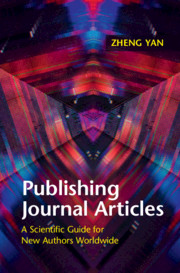Book contents
- Publishing Journal Articles
- Publishing Journal Articles
- Copyright page
- Dedication
- Contents
- Figures
- Preface
- Part I Nature of Journal Article Publication
- Chapter 1 Why Do We Publish Journal Articles?
- Chapter 2 What Does Publishing Journal Articles Mean?
- Part II Elements of Journal Article Publication
- Part III Strategies of Planning Journal Articles
- Part IV Strategies of Writing Journal Articles
- Part V Strategies of Publishing Journal Articles
- Part VI Future of Journal Article Publication
- Index
Chapter 1 - Why Do We Publish Journal Articles?
from Part I - Nature of Journal Article Publication
Published online by Cambridge University Press: 27 October 2020
- Publishing Journal Articles
- Publishing Journal Articles
- Copyright page
- Dedication
- Contents
- Figures
- Preface
- Part I Nature of Journal Article Publication
- Chapter 1 Why Do We Publish Journal Articles?
- Chapter 2 What Does Publishing Journal Articles Mean?
- Part II Elements of Journal Article Publication
- Part III Strategies of Planning Journal Articles
- Part IV Strategies of Writing Journal Articles
- Part V Strategies of Publishing Journal Articles
- Part VI Future of Journal Article Publication
- Index
Summary
This chapter focuses on a basic model of professional communication and two basic goals of journal article publication. It has five major sections, Intuitive Thoughts, Frank and Neil, Professional Communication, Scientific Research, and Practical Suggestions. It starts with a discussion of intuitive thoughts of graduate students and then a discussion of two real-life cases (Frank and Nell) so that we can see how new authors think and act related to the central question of the chapter. After that, two core concepts, professional communication and scientific research, are discussed in detail, followed by several practical suggestions. In brief, there are two major reasons why we publish journal articles, that is, to develop skills of professional communication and ultimately to advance scientific knowledge and to improve human life.
Keywords
- Type
- Chapter
- Information
- Publishing Journal ArticlesA Scientific Guide for New Authors Worldwide, pp. 3 - 12Publisher: Cambridge University PressPrint publication year: 2020

